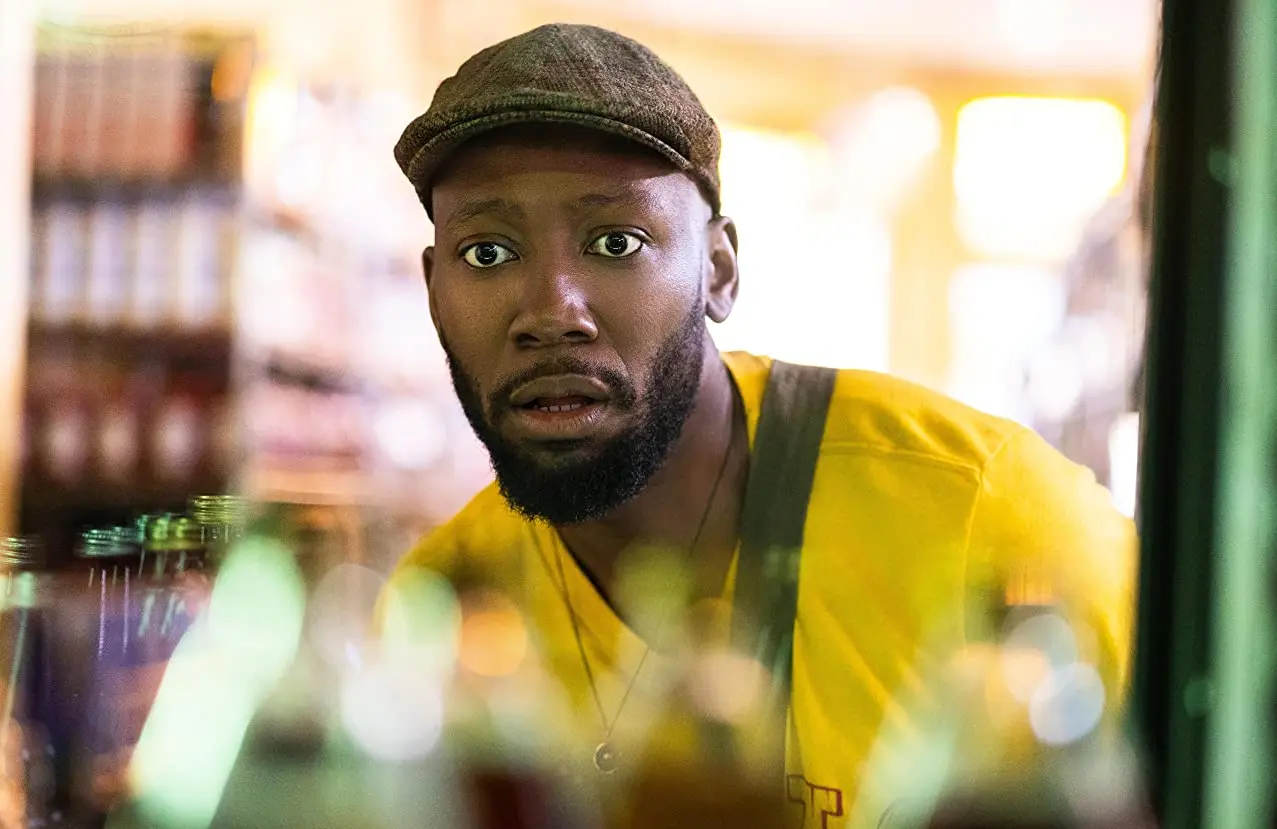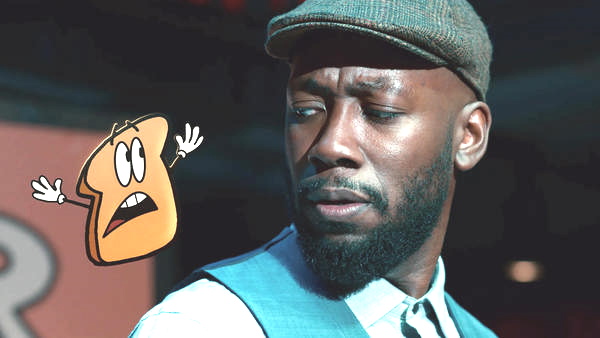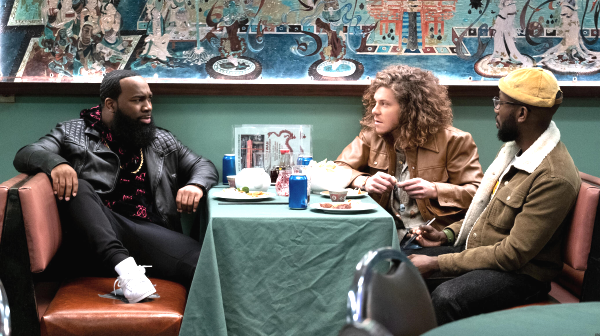Despite Blindspots, Hulu's Woke Shows Promise
-
 Lamorne Morris stars as a man who suddenly see life's injustices with clear eyes in Woke. (Hulu)
Lamorne Morris stars as a man who suddenly see life's injustices with clear eyes in Woke. (Hulu)"And so it begins."
That's the final line uttered in Woke's first season, which should come as a warning. As enjoyable as it is, the series falls victim to something that's become a real issue for many new shows in the Peak TV era; first seasons have become "premise" seasons, hoping to whet audience appetites with the promise of what the show could become if given the time to grow. Cynically, it might be seen as an attempt to strong-arm a network or streaming service into a second-season renewal because we just have to see where it goes from there. As High Fidelity recently (and unfortunately) proved, that second season doesn't always come. So, while there are stand-out episodes and moments, Woke's eight-episode first season functions more like an extended pilot.
Based on cartoonist Keith Knight's life and work, Woke stars Lamorne Morris as Keef Knight, a San Francisco cartoonist on the verge of making it big. His comic, "Toast -n- Butter," is about to go from a local newspaper strip to a nationally syndicated one. He's on the way to getting paid, which also means paying no mind when journalist Ayana (Sasheer Zamata) tries to discuss the racial dynamics of said strip. That's when Keef reveals his worldview as a Black creative in America: He just likes to "keep it light" for his audience, and he doesn't understand why he, as a person of color, is expected to have a message with his art. After all, it's literally about toast and butter.
Then Keef is hit by reality. While posting flyers for an upcoming convention appearance, cops mistake him for a mugger, hold him at gunpoint, and slam him onto the pavement for "resisting." After this traumatic event, Keef is awoken to a world he previously ignored, with the help of cartoon talking objects (forties at the bodega, sharpies, garbage bins) voiced by the likes of J.B. Smoove, Eddie Griffin, Nicole Byer, Jack McBrayer, and Keith David. While this may be the most obvious signal that the series is less grounded in reality than it at first appears, it's worth pointing out that this is also a show that requires us to accept that Keef, who is originally from Boston, has never had this type of experience before.
This is where Keef's relationship with his roommates and best friends, Clovis (T. Murph) and Gunther (Blake Anderson), comes in, as both serve very specific functions for him on his new path of discovery. Opportunistic Clovis is instantly annoyed by Keef's newfound "woke" status, as he doesn't see why they should all have to deal with him realizing things that every other Black person already knows. Gunther, on the other hand, tries to be more empathetic to Keef's new normal as a white ally, but he also misses his own privileged blindspots in the process. The trio's friendship is the heart of the show, grounding the series while also providing much of its humor.
Lamorne Morris, best known for his charmingly absurd portrayal of Winston Bishop for seven seasons on New Girl, brings a similar manic energy to Woke and takes it to the next level. Especially as Keef gets further away from his trauma and works to come to terms with it, Woke is a project worthy of his leading man status.

Woke's surreal visual style follows suit, deftly combining Keef's profession as a cartoonist with the newly askew angle from which he begins to experience the world. Working In tandem with the visuals, Woke also explores a version of San Francisco that television and movies typically fail to present: one with people of color, where residents use public transportation, out of view from the Golden Gate Bridge.
But even as it creates this more authentic, blended world, Woke also leaves a lot on on the table. The audience may be left wondering how woke Keef must become in order to be "woke enough." Is compromise unavoidable in order to thrive in a capitalist society? Will Keef only achieve full woke status if he becomes a Hotep? And to what end? These questions are left unanswered as the first season concludes.
The season also avoids the most obvious discussion it can possibly have outside of police brutality and microaggressions — despite seemingly casting specifically to have it — which is colorism. Specifically, colorism in Black relationships (a topic of conversation that's come up again with the trailer for the OWN docuseries Black Love). When the series begins, Keef's on the path to moving into his dream home with his lawyer girlfriend of two years, Trina (Alvina August). Things change in the aftermath of Keef's brush with police brutality... but not in the way you might expect. Trina is Keef's light-skinned girlfriend, and with the introduction of Sasheer Zamata's darker-skinned Ayana into Keef's life, a discussion of colorism in Black relationships seems inevitable. But it never comes.

Likewise, Keef and Trina's relationship ultimately feels tossed off and not at all important to Keef's new woke worldview, which would be fine… if not for the fact that his next romantic relationship is with a white woman (played by Rose McIver). That, of course, opens up another can of worms, specifically regarding Black men forgoing Black women altogether in favor of white women and the ease that they supposedly represent. Again, Woke fails to address any of that. Yes, there's some discussion about their races and her not quite getting his issues, but none of their talks are substantive enough to address the elephant in the room that you'd expect from a show called Woke. Morris and McIver have the chemistry necessary to make the pairing work on a fundamental level, but the choice of that pairing itself, without any true comment upon it, begs the question of what Woke deems worthy of discussion and what it will just ignore. In that way, it's much like Keef before he gets woke. For a series so much about Blackness and the Black experience, even opening with a title card stating that it is "Inspired by one experience... shared by many," it appears there's a deliberate choice being made here.
With shows like Dollface, High Fidelity, and now Woke, Hulu has begun to carve out a niche depicting the millennial experience from different, somewhat fantastical perspectives. Of those, High Fidelity was the most real (and the most creatively successful). That show's season-long-pilot vibe was rooted in its status as an adaptation of a very popular book and feature film. It told a full story, but it used its source material to pivot to the promise of a new day and new adventures in a second season. That's all fine and good, until we find out that second season isn't happening. This should stand as a warning for a show like Woke. If given a second season to more fully address the issues it leaves on the table, it could really blossom. Let's hope it gets one.
Woke drops its entire eight-episode first season on Hulu September 9th.
Despite her mother's wishes, LaToya Ferguson is a writer living in Los Angeles. If you want to talk The WB's image campaigns circa 1999-2003, LaToya's your girl.
TOPICS: Woke, Hulu, New Girl, Keith Knight, Lamorne Morris, Rose McIver, Sasheer Zamata